Female political prisoners at Tehran’s Evin prison denied visitation rights
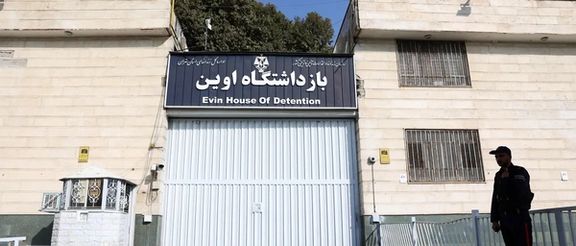
Thirty-seven female political prisoners in Tehran's notorious Evin Prison have been denied visitation rights.

Thirty-seven female political prisoners in Tehran's notorious Evin Prison have been denied visitation rights.
According to information obtained by Iran International, it came in response to their participation in an overnight sit-in on July 24 to protest the death sentence of fellow inmate Pakhshan Azizi.
Among the protesters were Nobel Peace Laureate Narges Mohammadi and Iranian writer and human rights advocate Golrokh Iraee.
The prisoners further protested Azizi’s death sentence through a one-day hunger strike on July 30, part of the ongoing “No to Execution” campaign held every Tuesday.
Azizi, sentenced to death for "armed rebellion," is one of at least four women at risk of execution on similar charges.
Azizi was the second woman in July this year to be sentenced to death on charges of "armed rebellion."
Already this year, rights groups claim Iran has carried out 300 executions. Last year, over 850 were reported as an execution wave sweeps the country in a bid to quash dissent.
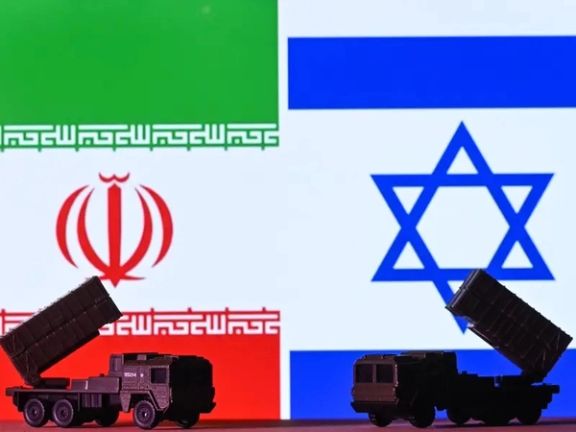
The threat of Iran-Israel war is different now than when Tehran launched its first direct attack on Israel in April, an Israeli insider who previously served as Commander of Israel Air Defense Forces from 2015 to 2018, told Iran International.
Iran's proxies, Hezbollah in Southern Lebanon and the Houthis in Yemen were not players in the April 13 scenario where Iran launched explosive drones and fired missiles at Israel, ending years of a shadow war between the two nations.
That attack took place less than two weeks after a suspected Israeli strike in Syria that killed two commanders from the Islamic Revolutionary Guards Corps (IRGC) at an Iranian consular building.
The potential for a looming war has surfaced less than a week after Hamas chief Ismail Haniyeh was killed in Iran's capital. He was in Tehran for the inauguration of Iran's newly elected president, Masoud Pezeshkian.
Iran’s Supreme Leader Ayatollah Ali Khamenei vowed retaliation against Israel on Wednesday. The Islamic Revolutionary Guard Corps (IRGC) said there would be “blood vengeance” for Haniyeh's killing.
Brigadier General Zvika Haimovich believes Hezbollah will have a crucial role in Iran's retaliation this time around. The Israeli insider said he cannot foresee any situation other than Iran retaliating to last week's killing, which Tehran blamed on Israel.
Israel hasn’t confirmed or denied any involvement.
Haimovich told Iran International there are still a lot questions that will determine whether there will be a full scale war.
The first question, he said, is will Iran strike central Israel like Tel Aviv or if it would be contained to the Northern part near the city of Haifa. The second question, he posed is will Tehran use accurate and precise missiles or will it resort to simple statistic weapons? And the third, according to the former Commander, will Iran use massive salvos, which is the release all at once of rockets.
"Everybody is under pressure, mainly the civilian, the military forces that are on high alert and full readiness around the border. The Army, the Navy, the Air Force, as well. We are waiting. Waiting for, what? This is the million dollar question," said Haimovich, who during his tenure the Iron Dome system became operational.
As people in the region await, there's uncertainty around when Iran would act, and just how far it might go. Haimovich said the 'imminent' attack could happen in less than 48 hours or in the coming days.
President Joe Biden and Vice President Kamala Harris met with the national security team in the White House Situation Room Monday afternoon.
The United States has not observed any specific movements in Iran so far that would indicate potential attacks on Israel in the coming hours, Sky News Arabia reported citing a Pentagon spokesperson.
The US has vowed to respond after several American personnel were hurt in a rocket attack that hit Ain al-Assad airbase in Iraq. The IRGC-affiliated Sabereen News earlier said Iran-backed militants were behind the attack, although no group officially claimed to responsibility.
According to Bloomberg, which cited sources close to the issue, G7 members have reached out to Iran to minimize its retaliation to prevent an even more destructive regional conflict.
Just how will Israel respond if Iran retaliates is all dependent on how Tehran conducts its strike and the nature of it, said the former top Israeli Commander.
In an exclusive interview with Iran International, former CIA director and US CENTCOM Commander David Petraeus said Iran and Israel would try to avoid a full-blown war for fear of the destruction it could bring on both sides.
“I think [the Iranians] have to respond,” Petraeus told Iran International's Marzia Hussaini, “this is an enormous blow to Iran's honor… It's a huge intelligence failure and… a security failure. So, they have to respond. But I don't think that Iran wants to get into a real direct back and forth war with Israel… And frankly, I don't think Israel wants to get in a real full-on war with Hezbollah or with Iran," he said.
Haimovich said Israel's retaliatory attack in April carried a strong message to the Iranian government, but he said it may not have been 'enough.' The strike against Iran’s sophisticated radar system in Isfahan just a few days after Tehran launched more than 300 drone and missile attacks on Israel, showed that Iran's defense capabilities could not match Israel’s military might, he said.
"After the Israeli response in April, the Iranian regime, they understood exactly what the Israeli capabilities is," he said.
As the world watches to see what unfolds, the former IDF commander Brigadier General Zvika Haimovich said Israel's strategic goals involve bringing the hostages home first and the war against Hamas, so any greater regional war would have to factor the state's short and long term game plan.
"It's a very complicated. I think that in the short term, we need to finish the multi-front war that we are dealing with. It's more than seven different fronts" said the Brigadier General, referring to a multi-front war with Gaza, Lebanon, Syria, the West Bank, Iraq, Yemen, and Iran.
Engaging in war with Iran, could potentially shift focus away towards a wider regional conflict .
"In the long term, I think we need to focus on the Iranian nuclear, wielding vision and capabilities, and build a strong and stable coalition lead by the United States of America and also the Arab Sunni states against Iran," he said.
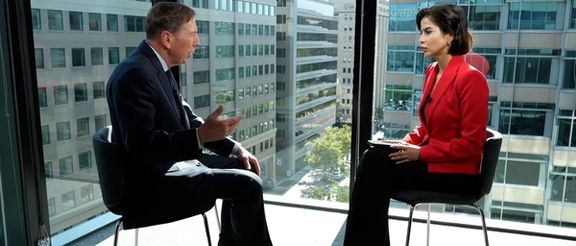
Iran and Israel would try to avoid a full-blown war for fear of the destruction it could bring to both countries, former CIA director and US CENTCOM Commander David Petraeus told Iran International in an interview, amid reports of an ‘imminent’ Iranian attack on Israel.
The cold war between the two countries heated up a few more degrees last week, when Hamas leader Ismail Haniyeh was assassinated in Tehran. Iranian officials, including the Supreme Leader Ali Khamenei, promised a harsh response that many believe would happen sooner rather than later.
“I think [the Iranians] have to respond,” Petraeus told Iran International's Marzia Hussaini, “this is an enormous blow to Iran's honor… It's a huge intelligence failure and… a security failure. So, they have to respond. But I don't think that Iran wants to get into a real direct back and forth war with Israel… And frankly, I don't think Israel wants to get in a real full-on war with Hezbollah or with Iran… I don't think they want to get into this with each other, because the damage to both sides would be very, very substantial.”
Governments in the region and beyond have intensified their diplomatic efforts in anticipation of Iran’s attack that they fear could spiral the cycle of retaliations out of control and drag them into yet another war in the Middle East. Little is known of the scale and the nature of Iran’s promised ‘revenge’ at this stage, but many fear that it could be more serious than the last retaliatory attack in April.
“There's a whole menu,” General Petraeus said on the potential targets of an Iranian operation. “I'm sure they're looking at everything from trying to hit a military site…all the way up to hitting critical infrastructure or a major port or something like that. If that actually was to succeed, Israel would have to respond in a very massive way, not unlike the way that they responded to the Houthi drone attack… and they did enormous damage to the port of Hodeidah in Yemen.”
The current round of escalation began last Wednesday when Haniyeh was assassinated while in Tehran for the inauguration ceremony of Iran’s new president, Masoud Pezeshkian. Fingers were immediately pointed at Israel, which has held to its customary silence on such matters in the face of the almost universal belief that the Israeli secret services were behind the assassination.
“My sense is that the Israeli intelligence services, once again, have demonstrated how thoroughly they have penetrated different elements inside Iran,” Petraeus said about the operation that killed Haniyeh. “The most plausible explanation that I have heard of how this was carried out is that it was a result of a bomb planted months ago in the guest house where Haniyeh ultimately stayed… This is really quite extraordinary in a country that, in many respects, is viewed as a denied space to other intelligence services.”
Iranian officials were largely silent on the details of the attack that had killed Haniyeh. It was the New York Times that first reported the ‘bomb’ scenario. The assassination has put the IRGC in the spotlight, as many inside Iran, even among former officials, criticize the intelligence apparatus and call for “investigation” and “clear answers” over security lapses that allowed the assassination.
Iran’s posture would not change with Pezeshkian
Gen. Petraeus was asked by Hussaini about the outlook of the conflicts in the Middle East and whether or not Iran’s new administration under Pezeshkian might be able to change things.
“The really concerning aspects of Iran, the drones and missile that they're selling to Russia, support for these malign actors…and armed forces that they support in Gaza, Hezbollah in southern Lebanon, Shia militia in Iraq and in Syria, Houthis in Yemen, I don't think he has any control over that,” Petraeus said. “What he might be able to do, would be to reduce the role of the religious police in enforcing the hijab and that actually could provide some degree of relief for the people. It's possible he could carry out limited reforms of the economy.”
Pezeshkian has indeed promised to address Iran’s worsening economic situation. However, many experts inside Iran say it’s next to impossible to effect meaningful change without a drastic shift in Iran’s foreign and nuclear policy that would relieve the country’s economy of sanctions.
But General Petraeus was not too optimistic about a breakthrough in the nuclear front, warning that the next US administration may have little incentive to get softer with Iran.
‘Tougher’ policy under Trump or Harris
“I suspect that the policy gets much tougher after the election, regardless of who is elected,” the former CIA director said. “Donald Trump has said that he will reimpose some of the sanctions… I think that a Harris presidency will do the same. The truth is right now, in an election year, you're worried about the price of gasoline at the gas pump, and if they, for example, impose sanctions that reduce the ability of Iran to export 1.5 million barrels of oil and distillates, the price of gas is going to go up.”
Petraeus called Iran an “enemy” whose ultimate goal is to push the United States out of the Middle East. He warned, however, that that may not be a real option for any American administration.
“This continued effort of the US to leave the Middle East is like Michael Corleone trying to leave the mafia. You just keep getting sucked back in, and you might as well acknowledge that and determine what is the most effective and efficient force structure required to ensure our objectives in the region, and then maintain that, sustain it and stop scaring all the people in the region who are afraid that we're going to leave,” he said.
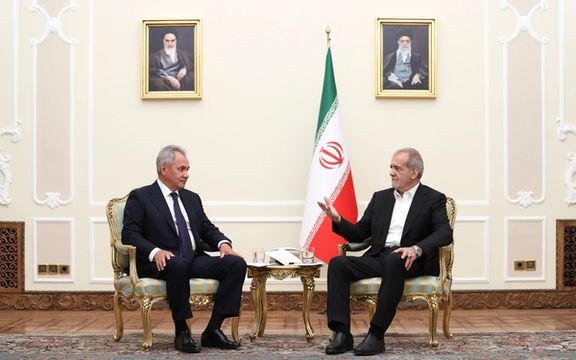
Iran’s President Masoud Pezeshkian told Russia’s Sergei Shoigu in Tehran that while his country is not seeking escalation, it will respond to Israel for the killing of Hamas’s Ismail Haniyeh.
The world is anxiously watching the rising tension between Iran and Israel as reports speak of a retaliatory Iranian attack sooner than later.
Pezeshkian told Shoigu that "Iran is by no means seeking to expand the scope of the crisis in the region, but this regime will certainly receive a response for its crimes and arrogance."
The exact reason for Vladimir Putin’s confidant, Shoigu, on Monday remained unclear. Whether Russia’s former long-time defense minister went to Tehran to calm the situation or discuss military matters ahead of a possible war with Moscow’s close ally remains unknown.
Pezeshkian was also quoted as telling the Kremlin envoy that "Russia has been one of the countries that has stood by the Iranian nation during difficult times. Developing relations with this strategic partner is a priority of the Islamic Republic of Iran's foreign policy, and there is a need to expedite the implementation of the agreements made between the two countries."
He also repeated the Islamic Republic’s standard position that together with Russia, China and others, Tehran will oppose US power and influence. "We believe the era of dominance by certain powers, including the United States, has passed, and the shared positions and cooperation between Iran and Russia in promoting a multipolar world will certainly lead to greater global security and peace."
Meanwhile, US Secretary of State Antony Blinken said later on Monday Washington was engaged in intense diplomacy to ease tensions in the Middle East and urged all parties to refrain from escalating.
Speaking after his meeting with Australian Foreign Minister Penny Wong, Blinken also said it was crucial that a ceasefire deal in Gaza is reached and called on all parties to find ways to come to an agreement.
Also on Monday, State Department spokesperson Matthew Miller said the United States has been urging countries through its diplomatic engagements to tell Iran that escalation in the Middle East is not in their interest.
Speaking at a daily briefing, Miller said this was a "critical moment" for the region and that U.S. Secretary of State Antony Blinken was working the phones to help calm the tensions, but also said Washington was preparing for all possibilities.
Two American destroyers, the USS Laboon and USS Cole, shifted from the Gulf of Oman to the Red Sea, in the direction of Israel, The Washington Post reported on Monday citing defense officials.
"The aircraft carrier USS Theodore Roosevelt remained in the Gulf of Oman as of this morning," the report added.
The US Navy played a key role in the interception of Iran's large-scale missile and drone attack on Israel in April.
A Pentagon spokesman stated Monday that the United States has not observed any specific movements in Iran so far that would indicate potential attacks on Israel in the coming hours, according to Sky News Arabia.
Monday evening local time three explosions were heard in Sepahan-Shahr, Isfahan province, according to Iran's state-run media and citizens' reports.
Mohammadreza Jan-Nessari, the Deputy Governor of Isfahan, said "the sounds of the explosions were caused by a training exercise."
Isfahan province is home to multiple Iranian military and nuclear facilities, some of which have been targeted in suspected Israeli strikes in the past.
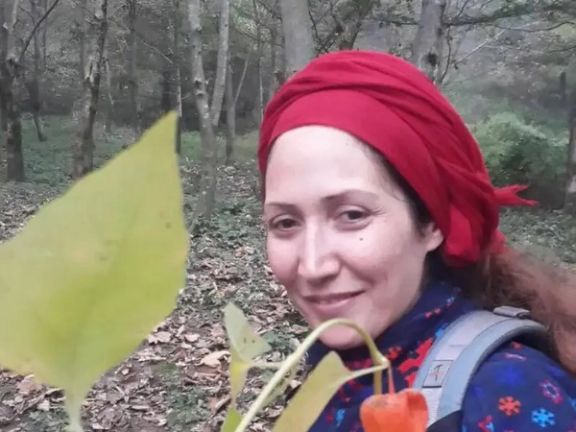
As 31 international human rights organizations call for the release of Sharifeh Mohammadi, a labor activist sentenced to death, a Kurdish political prisoner has boycotted her court proceedings in protest.
They have condemned the accusations against Mohammadi as unfounded, asserting that Iran’s security institutions fabricated the case.
In a joint statement published by the US-based Human Rights Activists News Agency (HRANA), the rights groups urged Iran’s judiciary to drop all charges against Mohammadi and to cease the systematic harassment of women. “We ask the Iranian judiciary to immediately and unconditionally revoke all charges against Sharifeh Mohammadi," the statement read.
On July 4, Mohammadi was sentenced to death by Branch 1 of Iran’s Islamic Revolutionary Court in Rasht, under Judge Ahmad Darvish Goftar. She was convicted on charges of "armed rebellion" due to her alleged membership in the national Labor Unions Assistance Coordination Committee (LUACC), which operates legally in Iran, and the banned Komala Party of Iranian Kurdistan.
Both Mohammadi and her family have consistently denied her involvement with these organizations.
"The charges were brought against her because of her activities in defense of workers' rights, which were not only peaceful but also legal and within the framework of the country's laws,” the statement added.
It comes amid major crackdowns on labor protests which intensified after the Women, Life, Freedom uprising of 2022. Iran's economic crisis has seen calls for better working conditions and pay for workers across a range of industries.
The Campaign to Defend Sharifeh Mohammadi, supported by her family, has launched an online petition calling for the annulment of her death sentence and her immediate release. The petition has garnered over 5,000 signatures. “Sharifeh has no membership in any armed organization or political entity,” the petition asserts.
Other rights groups, including the US-based Center for Human Rights in Iran (CHRI), have also called for the immediate overturning of Mohammadi’s death sentence, expressing concern for other prisoners at risk of execution based on similarly dubious charges. Among them are Pakhshan Azizi and Varisheh Moradi, who also face "armed rebellion" charges.
In protest against the death sentences of Mohammadi and Azizi, Kurdish political prisoner Varisheh Moradi, currently imprisoned in Evin, refused to attend her second court session on Sunday.
“I will not go to court in protest against the death sentences handed down to my comrades Sharifeh Mohammadi and Pakhshan Azizi, and I do not recognize a court that does not issue fair judgments,” Moradi wrote in her defense letter, published by Iranian women’s rights group Bidarzani.
Moradi was scheduled for a second court session on August 4 before Judge Salavati, notoriously known as the “judge of death,” at Branch 15 of the Islamic Revolutionary Court.
Following her refusal to attend, her lawyers, who have been denied access to her case details, were informed that the session has been postponed to a later date, according to the Kurdistan Human Rights Network (KHRN).
Moradi was arrested on August 1 last year and spent 13 days in Iran’s intelligence ministry detention in Sanandaj before being transferred to Ward 209 of Evin Prison in Tehran.
In her defense letter, Moradi described the severe mistreatment she endured from the moment of her arrest, stating she was subjected to “torture and physical assault.”
She described being subject to giving forced false confessions at Tehran's Evin prison, a tactic commonly used by Iranian authorities to justify the issuance of death sentences or long prison verdicts.
“I was transferred to Ward 209 of Evin House of Detention, where I spent four and a half months under intense pressure during interrogations that included torture, contradictory and deceptive fabricated scenarios, threats of character assassination, and forced confessions. I suffered severe headaches, constant nosebleeds, and worsening neck and back pain.”
“These were the gifts of my days in solitary confinement,” she added.
So far this year, 300 people have been executed in Iran. It follows record numbers last year when over 850 were killed.
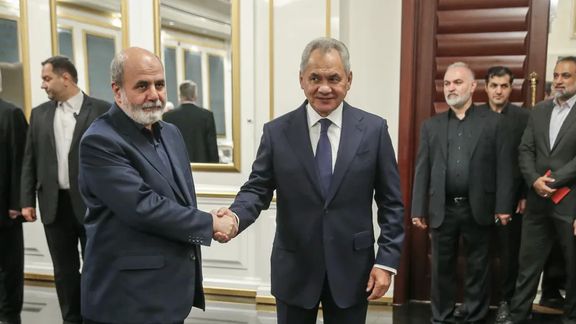
As tensions escalate in the Middle East, high-ranking military officials from the United States and Russia have converged in the region for emergency planning.
The catalyst for the urgent visits appears to be the looming threat of an Iranian attack on Israel, predicted to occur 'imminently', according to US intelligence.
A high-ranking Russian delegation led by Sergei Shoigu, the Secretary of Russia's National Security Council, arrived in Tehran. The purpose of the visit, according to the Secretariat of the Supreme National Security Council of Iran, is to strengthen political and security ties and to discuss regional and international issues. However, the timing of Shoigu's arrival coincided with heightened military preparations and international concern.
Meanwhile, Michael Erik Kurilla, the commander of the United States Central Command (CENTCOM), arrived in Israel on Saturday. Although a US official stated that Kurilla's trip was planned before the recent surge in tensions, it is now expected to serve as a crucial opportunity to bolster the international coalition defending Israel.
Earlier, Pentagon spokesman Pat Ryder announced that US Secretary of Defense Lloyd J. Austin discussed regional tensions with Israeli Defense Minister Yoav Gallant on Sunday.
On Monday, US Secretary of State Anthony Blinken and his Qatari counterpart Mohammed bin Abdulrahman Al Thani spoke on the phone to discuss the possible attacks by Iran and Hezbollah against Israel, stressing the need for de-escalation, according to Axios journalist Barak Ravid.
French President Emmanuel Macron said he has spoken with UAE President and Saudi Crown Prince on the situation.
"We call on all stakeholders to show responsibility and restraint to avoid a regional conflagration. No one has any interest in escalation," he said.
During a visit to the underground command center of the Israeli Air Force, Israeli Defense Minister Yoav Gallant highlighted the country's readiness to transition swiftly to offensive operations if necessary.
"Our enemies are carefully considering their every move because of the capabilities you have demonstrated over the past year. Nevertheless, we must be prepared for anything – including a swift transition to offense," he said.
Several countries have advised citizens to leave Lebanon and Iran. The situation has led to airlines, including Lufthansa, Delta, and others, suspending flights to the region due to the escalating risks.
In Lebanon, the World Health Organization has delivered 32 tons of medical supplies in anticipation of potential war casualties, reflecting the increasing likelihood of a broader conflict involving Hezbollah and Israel.
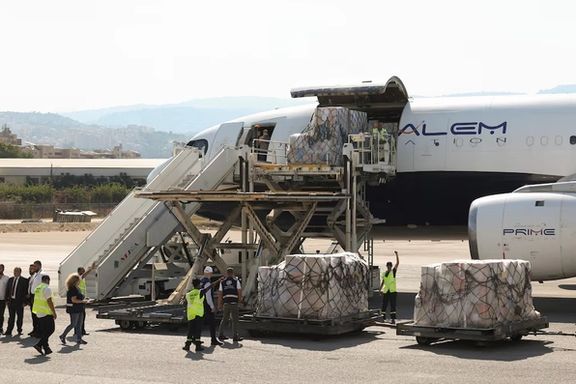
"The goal is to get these supplies and medicines to various hospitals and to the health sector in Lebanon, especially in the places most exposed (to hostilities) so that we can be ready to deal with any emergency," Lebanon’s Health Minister Firass Abiad told reporters at the airport landing strip where the aid arrived.
Meanwhile, Beirut airport has seen a surge in people attempting to leave the country, indicating widespread fear of an impending full-scale war.
Iranian officials have at the same time continued their inflammatory rhetoric. On Monday, Ali Bagheri Kani, the Acting Foreign Minister of Iran, held a meeting with Khaled Qaddoumi, the representative of the Hamas movement in Tehran. The visit, part of a broader consultation with various ambassadors and foreign mission heads in Tehran, underscores Iran's intention to launch the attack very soon.
Kani emphasized the “moral imperative” to oppose what he described as the "occupation of Palestinian land and the genocide of a nation," framing the situation as one where indifference and appeasement would only “enable further evil.”
Speaking to his Bahraini counterpart, Bagheri Kani said Iran would be "rewarding" Israel if it remains silent following the killing of Ismail Haniyeh. "Therefore, the Islamic Republic considers reciprocal action to be its right, based on international rules and norms," he said.
Hossein Salami, commander-in-chief of the Islamic Revolutionary Guard Corps, criticized Israel's recent actions, calling for a harsh response to what he termed as an Israeli mistake.
"If the Israelis receive a firm response, they will understand that killing Haniyeh was a mistake… The Israelis are constantly making calculation errors, and they have repeated this mistake once again," he said.
Iranian Foreign Ministry spokesman Nasser Kanaani also underscored Iran's determination to retaliate, emphasizing that no external messages were needed to justify their actions.
Backed by the US and an international coalition, Israel braces for a potential Iranian assault, similar to that created in the face of the April 13 bombardment towards Israel. At the time, most of the 350 projectiles were intercepted.